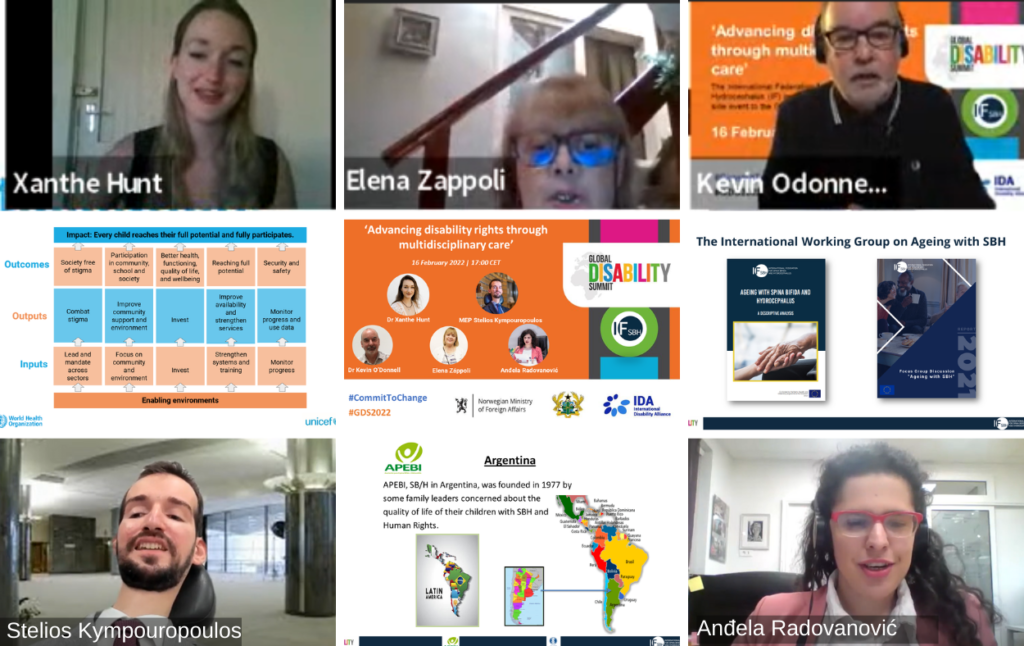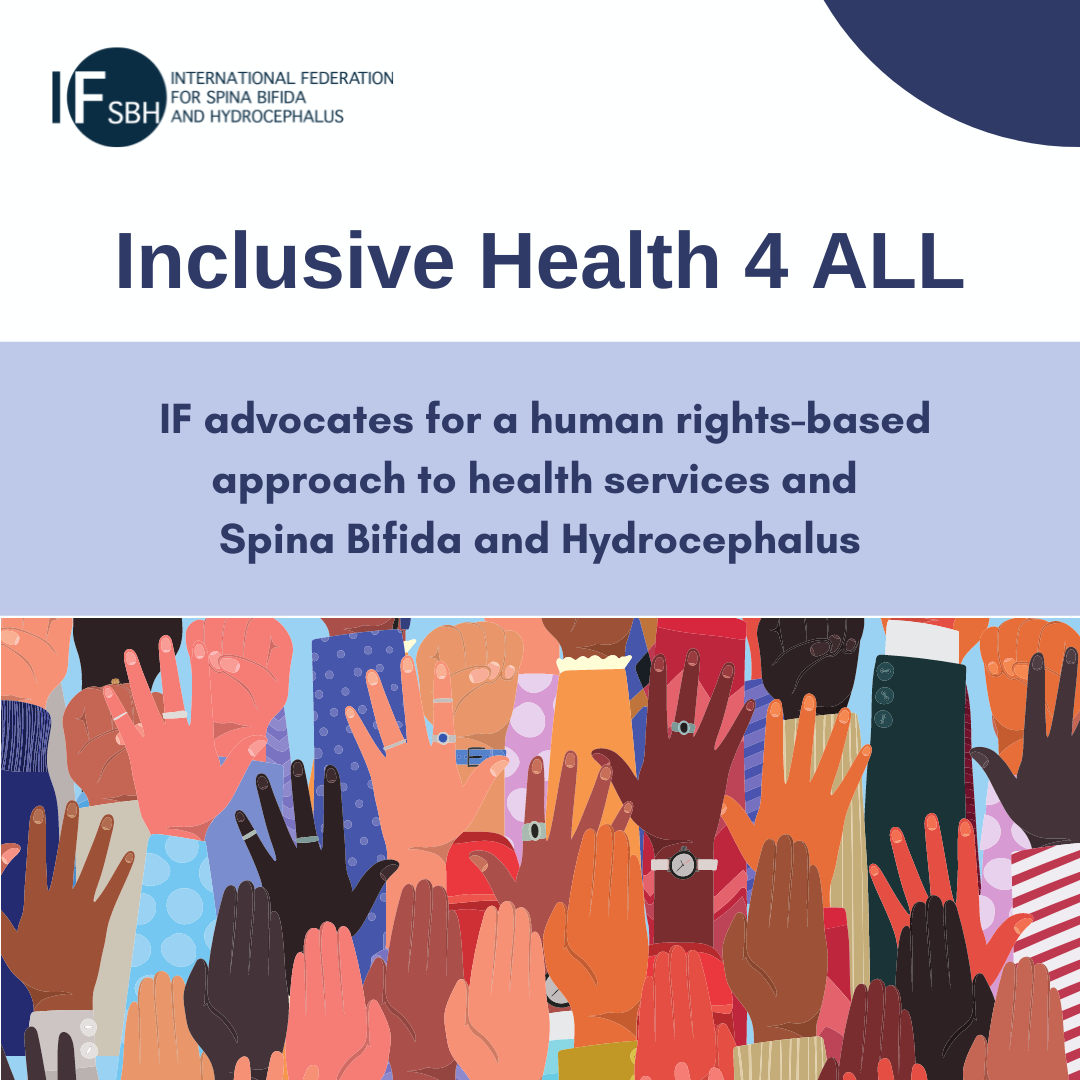
On February 16 2022, International Federation for Spina Bifida and Hydrocephalus (IF) organized the side event Advancing Disability Rights Through Multidisciplinary Care as part of the Global Disability Summit 2022.
Health is an enabler of inclusion and article 25 of the UN Convention on the Rights of Persons with Disabilities (UNCRPD) outlines the responsibilities of state parties to guarantee the right to health for persons with disabilities. Availability does not equal access and the design of these services plays a crucial role in the implementation of article 25. Persons with Spina Bifida and Hydrocephalus (SBH) encounter numerous barriers in accessing health services. When specialised health services for the need of persons with SBH specifically due to their disability (article 25(b)) are available they are often spread out over long distances (article 25(c)). Lack of coordination between different health services as well as lack of awareness by healthcare professionals and providers also hinders access to general health services, including sexual and mental health services (article 25(a) and 25(d)). All this accumulates to persons with SBH reporting on their experience that health services do not perceive them as complete individuals, but rather as a collection of separate health problems.
IF has been active on the topic of multidisciplinary care and the right to health for many years as it is a high priority concern for the SBH community. From its position as an organisation of persons with disabilities (OPD) IF advocates for a human rights-based approach to health services and SBH.
Together with an international panel of speakers from WHO, European Parliament and IF, the event raised awareness of disability rights in the context of health services. The speakers presented how integrated multidisciplinary care advances disability rights by promoting a person-centred and human rights-based approach to health services, connecting the principles of article 25 with the design and provision of health services.
On the occasion of the Global Disability Summit, IF invited an international panel of speakers who are all leading by example. The IF President opened the meeting and welcomed all speakers, delegates and participants.

The first speaker, Dr Xanthe Hunt (WHO representative) shared current contributions by WHO in collaboration with UNICEF to accelerate Inclusive Health for All. Important pillars of work were shared such as on accessibility and overcoming stigma and the need for coordinated actions and mainstreaming these.
Thereafter, MEP Stelios Kympouropoulos gave an inspiring speech on personal experiences on the advocacy of disability rights in health policy to accelerate Inclusive Health for All.
The chair of the IF working group on ageing with SBH, Dr Kevin O’Donnell, provided perspectives on what person-centered care means for a person with Spina Bifida. Moreover, the recent work by the ageing working group was used as an example.
The chair of the Latin-American Network SBH (RELAEHBI), former president of IF member association in Argentina APEBI, and former IF board member, Elena Záppoli, provided an overview of excellent activities going on in Latin American countries. Elena showed us how strong a network can be in building inclusive societies also with respect to inclusive health.
Moreover, another active IF member Anđela Radovanović, programme manager at the Association of Youth with Disabilities of Montenegro, shared insights into an inclusive policy model of health. She strongly recommended youth to become actively involved with their national associations to advocate for a more inclusive policy model of health.
In conclusion, Dr Sylvia Roozen IF Secretary General concluded there is a need for more leadership from persons with disabilities. Whereby the speakers of this side event have truly shown to lead by example. The human rights approach of this event was further entrenched by the perspective of persons with disabilities such as SBH as well as speakers who all are dedicated to making change happen in policy and health services.

Actions to accelerate inclusive health for all are much needed. The meeting raised awareness of the UNCRPD and article 25 and explore the topic of health services from the perspective of persons with disabilities. Understanding the different barriers persons with SBH face when accessing health services and how multidisciplinary care addresses those barriers. By doing so, exploring how to design health services in a way that advances and guarantees the right to health for persons with disabilities.
It takes a global effort and therefore today’s meeting is also about learning from each other whereby we trust the speakers can inspire the work going on in your countries. Partnerships are a catalyst for change. Achieving change furthermore requires active involvement as all of the speakers in one way or another way expressed. With the acquired energy during the meeting, IF will continue its activities also in partnership with you.
If you are interested to become more involved in the work on inclusive health, contact IF at [email protected].

